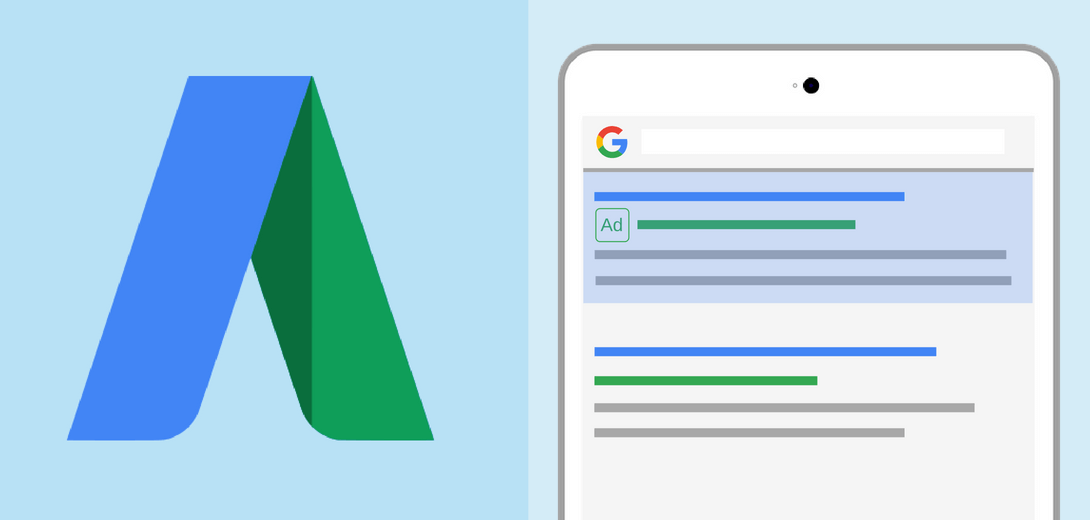The web presence of a business has become increasingly vital to its success, which is why Sevaa strives to provide everything from hosting to maintenance. We help clients keep up with ever-changing trends and uncover the secrets of optimizing their website for the Internet. It’s every business’s goal to increase the traffic flow to their site. According to Invesp, 8.2% of retail sales were made online in 2017. 8.2 seems like a small number, but that translates to an estimated $2.197 trillion! That’s expected to increase to almost $2.5 trillion in 2018.
Although a website that can survive purely on organic traffic is ideal, it’s not likely. Like any new project, a little boost might be necessary to spread awareness. Similar to a newspaper ad, billboard, or commercial, online advertising showcases your business where it matters most.
Once you’ve set up an account with Google AdWords, you can start working to advertise your business. Here’s how it works:
Paid vs. Organic
When someone searches for any keywords related to your business, your paid ad may appear on the top or bottom of the search engine results page based on how relevant it is to the user, your bid, and other factors. The search engine will indicate that the listing is an ad. It may look something like this:

Anything that isn’t labeled as an ad is considered organic search results. This content is related directly to what the user searched for and is arranged based on relevancy. Based on your website’s SEO, it is possible to have an ad and rank as the number one website on the first search engine results page. Neither affects the other.
Ad Auction
An ad auction determines which AdWords ads show up every time someone searches on Google or visits a website and an ad space is available. AdWords will calculate a score known as Ad Rank during the auction. This will determine your ad’s position on the search engine results page, or if it shows up at all. There are 3 factors that go into calculating your Ad Rank:
1. Your bid
A bid puts your ad in the ad auction. It is the max amount you’re willing to pay for one click on your ad (or impression, or conversion, or engagement, depending on your ad’s goal). CPC (costs-per-click) is a good place to start since it indicates how many people visit your website by directly clicking on the ad. CPC bidding allows you to either manually control your bids or automate your bids by setting a daily budget that AdWords will use accordingly to optimize possible clicks.
Although no minimum budget is required for AdWords, it is recommended that advertisers start with an average budget somewhere between $5 and $50. This allows all companies, no matter how small, to take advantage of the process. Even a $5 budget is better than none at all.
CPC and PPC (pay-per-click) are often used interchangeably. However, CPC is the amount of money an advertiser is willing to pay every time their ad is clicked. It is used to measure the success of an ad. PPC describes a type of marketing where clicks are paid for as opposed to being earned organically.
2. The quality of your ads
AdWords also considers the relevance and usefulness of your ad to users. The quality of the ad is summarized by your Quality Score, which you can view in your AdWords account.
3. The expected impact from your ad extensions
Ad extensions are the additional information you include with your ad when you create it (phone number, location, etc). AdWords takes this information into consideration in order to estimate how it will impact your ad’s performance.
Audience Targeting
AdWords allows you to target an audience based on keyword, time of day, location, and more. To get an idea of targeting your ideal audience, research using your website’s Google Analytics. Among many factors, Google Analytics can show you what website users are coming from, where they’re searching from, what time is the most popular for people to visit your website and common keywords that users type in to find your website organically.
When you create an ad campaign, you’ll need to have an idea of which keywords or phrases users are likely to use when searching for businesses like yours. This is when a keyword strategy comes in handy.
Google AdWords offers an approachable process to getting your ad online and traffic to your website. With flexible budget plans and easy-to-understand tutorials, AdWords is accessible to most, if not all, businesses. And with analytics and testing provided, you can improve and optimize your ads to suit your goals.


